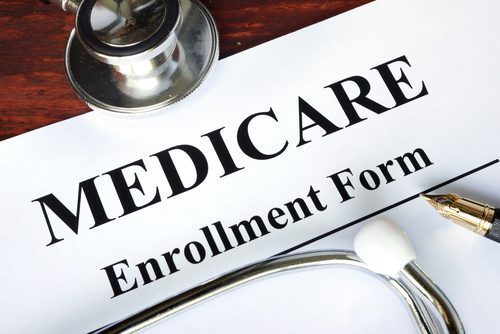No one wants to pay more than they have to for any part of their Medicare coverage. We hate when we see our clients get stuck with Medicare penalties that could have been prevented. But, you can’t prevent them if you don’t know what they are!
Today, we’re going to discuss which penalties apply to Medicare and what you can do to avoid them.
Medicare Penalty for Part A
This is the least common of the Medicare penalties since most people qualify for premium-free Part A.
To be eligible for premium-free Part A, you must have worked and paid Medicare taxes for 10 years (forty quarters). If you (or your spouse) have done that, you can get premium-free Part A when you turn 65. If you do choose to delay coverage for any reason, you will not pay a penalty – even if you don’t have other creditable health insurance in place.
Not qualifying for premium-free Part A already feels like a penalty. In 2021, you could pay up to $471 each month for Medicare Part A if you haven’t met the requirements. If you choose to delay enrollment and do not have other creditable coverage, you will be penalized.
The penalty will be an additional 10% of your Part A premium. If you had to pay the full $471 for Part A, an additional 10% would make your monthly premium a whopping $518. You will continue to pay this higher premium for twice the number of years you delayed enrollment.
How to Avoid the Medicare Part A Penalty
If you have not met the requirements to be eligible for premium-free Part A and you have other creditable health insurance, you can delay your Part A enrollment. This may be a good decision if you or your spouse are still working and will eventually qualify for premium-free Part A. However, you must make sure your current health insurance is creditable.
Creditable insurance offers at least the same amount of coverage as Medicare Parts A and B. If you are receiving it from an employer who has at least 20 employees, it is creditable insurance. Smaller businesses may also have creditable coverage, but you should check with your HR department to be sure.

Medicare Penalty for Part B
The Part B penalty is similar to what we discussed for Part A. Anyone who does not enroll in Part B upon eligibility will be penalized. This does not apply to those who have creditable insurance.
Individuals who postpone enrollment without creditable coverage for 12 months or more will be penalized. Like the Part A penalty, this one is also an additional 10% of your monthly premium. In 2021, the premium for Part B was $148.50. Adding a 10% penalty would increase your monthly payment to $163.35, and that is only if you get the standard premium. (Those with higher incomes will pay a higher premium, so the 10% penalty could also amount to more.)
The additional 10% will apply for every 12-month period you delayed coverage. If you delayed coverage for three years, you’ll be penalized by 30%. Ouch. Unlike the Part A penalty, the Part B penalty never ends. You will pay this additional fee for as long as you have Part B coverage.
How to Avoid the Medicare Part B Penalty
Use the same tactics as we discussed for Part A. If you want to delay enrollment in Part B, be absolutely sure that you have other creditable coverage in place. Speak to your HR department or benefits manager or call your local Social Security office to verify your coverage.
Medicare Penalty for Part D
This is the most common penalty seen in Medicare, and it’s easy to understand why. Many of our clients are fortunate enough to not be taking any prescription drugs when they first enroll in Medicare. Because of that, they believe they do not need the prescription drug coverage of Medicare Part D.
However, if you do not enroll in a Part D plan as soon as you are eligible, you will be penalized. The penalty begins after you have gone without coverage for 63 days. This penalty is a little more complex to calculate. It is calculated by multiplying 1% of the national base beneficiary premium by the total number of months you delayed coverage.
The national base beneficiary premium changes each year. In 2021, it was $33.06. That may not add up to a significant number depending on how long you delayed coverage, but like the Part B premium, this one sticks with you for as long as you have a Part D plan – even if that plan is part of your Medicare Advantage plan.
How to Avoid the Medicare Part D Penalty
Again, the way to avoid this is the same as avoiding the Parts A and B penalties. Sign up for a Part D plan as soon as you are eligible. If you are not taking any prescription medications, there are Part D plans with a very low monthly premium.
You can also delay coverage if you have creditable insurance, but the definition of creditable insurance for prescription drugs is different than it is for Parts A and B. To be creditable, your current drug coverage must pay at least 60% of the prescription cost, cover both generic and name-brand medications, include coverage at multiple pharmacies, and either has a low deductible or no maximum amount.
Healthcare can get expensive quickly, without tacking on extra penalties. Make sure you understand how you can be penalized in Medicare so you can avoid the additional fees. If you’re not sure about delaying coverage, talk to one of our knowledgeable agents who can help direct you to resources that can help.
Related Blog Posts
-
After personally talking to thousands of Medicare beneficiaries, I've seen just about everything you can imagine. And some of the…
-
For most people, their Medicare enrollment process will begin three months before they turn 65, which marks the beginning of…













